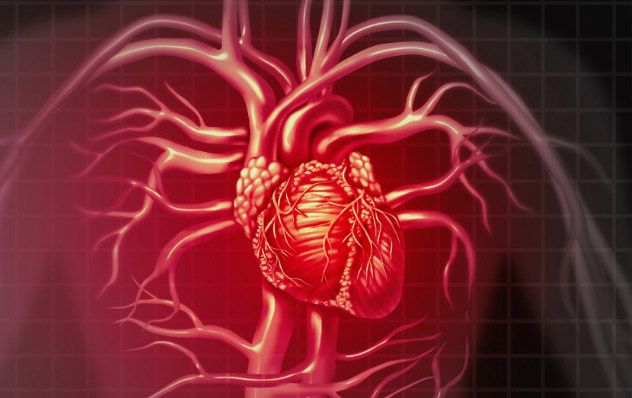Heart Attacks: Scripps Institute Researchers Develop Small Molecule TGP 377 To Trigger Protein VEGF-A Production To Repair Post Heart Attack Cardiac Tissues
Source: Heart Attacks: Aug 30, 2020 5 years, 5 months, 2 weeks, 3 days, 1 hour, 23 minutes ago
Heart Attacks: It is already a known fact that a heart attack can leave parts of the heart permanently scarred and stiff, resulting in prolonged disability and potential progression toward heart failure. Medical researchers have studied various ways to repair or regenerate such damaged heart tissue with only limited success.

However a new study led by chemist Dr Matthew Disney, Ph.D., from Scripps Institute shows that by targeting an essential biomolecule that surges in failing heart muscle, it may be possible to heal damaged heart tissue with medication.
The study findings are published in the journal: Nature Chemistry.
https://www.nature.com/articles/s41557-020-0514-4
The Dr Disney collaboration describes the discovery of the first compounds able to restart cellular production of a factor called VEGF-A or r vascular endothelial growth factor A, in cellular models.
Studies over many years has shown VEGF-A acts as a signal to stem cells, causing them to rebuild blood vessels and muscle in damaged heart tissue, and improve blood flow.
Simply targeting RNAs, the 'middleman' between genes and protein production, makes logical sense, but doing so with medicines was once deemed unfeasible. RNAs were long thought to be poor small-molecule drug targets due to their simple four-base makeup and dynamic shape. Through the years, Disney and colleagues have developed an array of computational and chemical tools designed to overcome those barriers.
Dr Disney explained in a phone interview with Thailand Medical News, "During a heart attack, the injury causes proteins that could promote new, healthy blood vessel growth to go silent. We analyzed the entire pathway for how the protein is silenced, and then we used that information to identify how to reinvigorate its expression."
Dr Hafeez Haniff, lead author and a graduate student at Scripps Research, Florida, analyzed the genomics underlying VEGF-A production to assess optimal RNA drug targets, working in collaboration with scientists at AstraZeneca. The team selected a microRNA precursor called pre-miR-377, finding it acts like a dimmer switch for VEGF-A production in failing heart muscle.
The study team then used Dr Disney's computational and chemical tools, in conjunction with a diverse set of compounds from AstraZeneca's collection, in search of chemical partners able to selectively bind to the key conserved structural features of pre-miR-377.
Dr Haniff added, "A remarkable on-target specificity is achieved by combining the active compound with other helper molecules.”
The tea had also tried other strategies that have been attempted to boost VEGF-A production include administration of VEGF-A itself, or delivery of messenger RNA that encodes for the protein.
Dr Disney added, "Each of these approaches uses large compounds that can have limited distribution to diseased tissues, compared to potential specific, RNA-binding small-molecule lead medicines."
The study however pointed out that the compound has, so far, been tested in cells, not wh
ole-animal models of heart failure.
Dr Disney says, "We delivered a lead small molecule compound to reprogram the cell's software to force it to re-express VEGF-A. Transforming TGP-377 into a potential medicine that reaches patients will take considerably more time and research."
Dr Disney called their success a "test case" that shows it is possible to reliably and predictably develop medicinal compounds for pre-defined RNA targets and induce protein production in cellular models.
Dr Malin Lemurell, who is head of Medicinal Chemistry, Research and Early Development, Cardiovascular, Renal and Metabolism, BioPharmaceuticals R&D at AstraZeneca said, ”This is a potentially important first step. The ability to design small molecules capable of interacting with and modulating RNA could open new avenues to target challenging disease pathways that have previously been considered undruggable. This research has enabled the generation of quality tool compounds that will be useful to probe this mode of action further."
As a result of the large-scale screening done to identify TGP-377, Dr Disney says the group expanded by 20-fold the data set of known RNA-binding small molecules generally, with implications for multiple incurable diseases.
Dr Disney said, "There are potential RNA drug targets for nearly every disease. We now have a much greater toolbox to search for lead molecules with medicinal potential."
For more about
Heart Attacks, keep on logging to Thailand Medical News.
